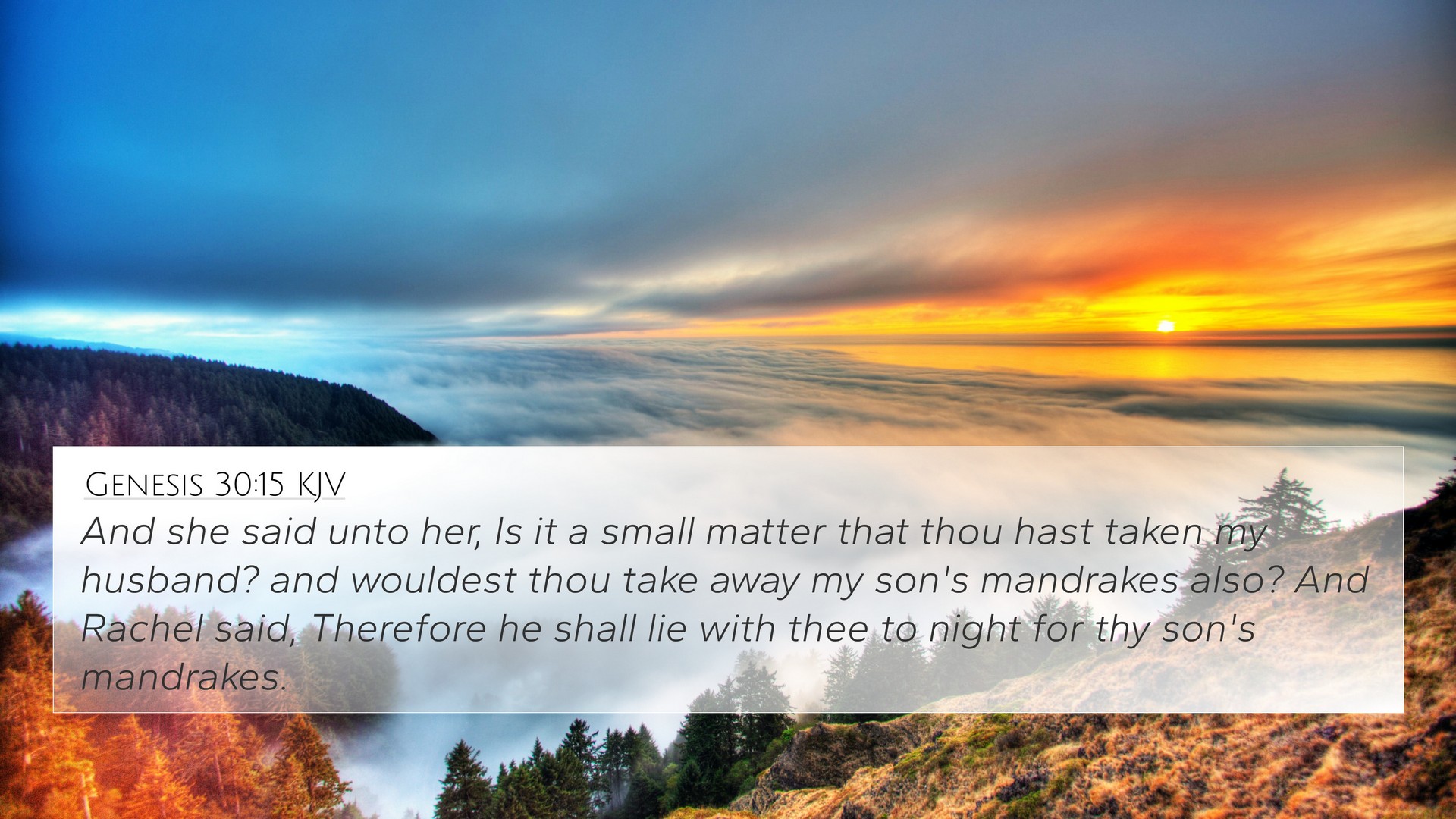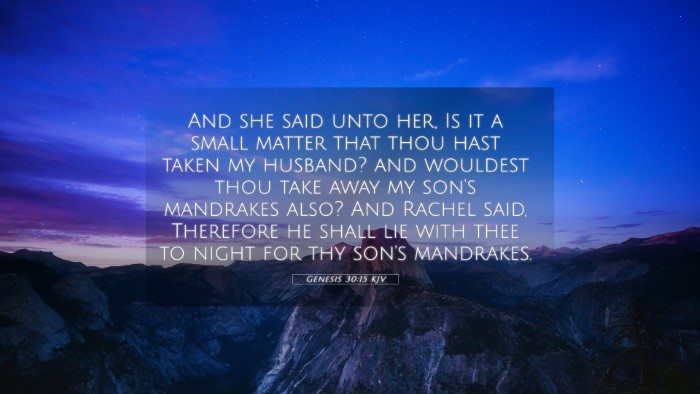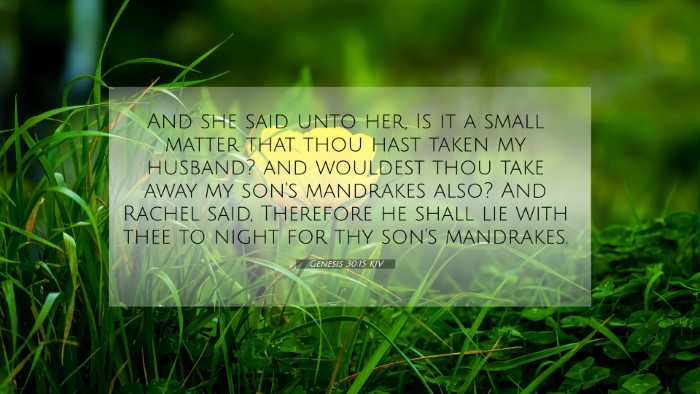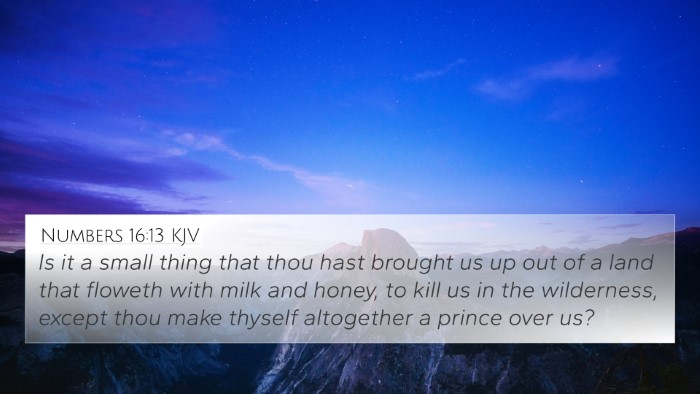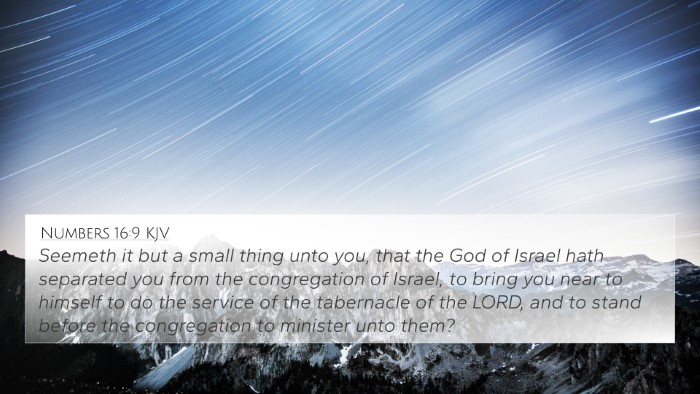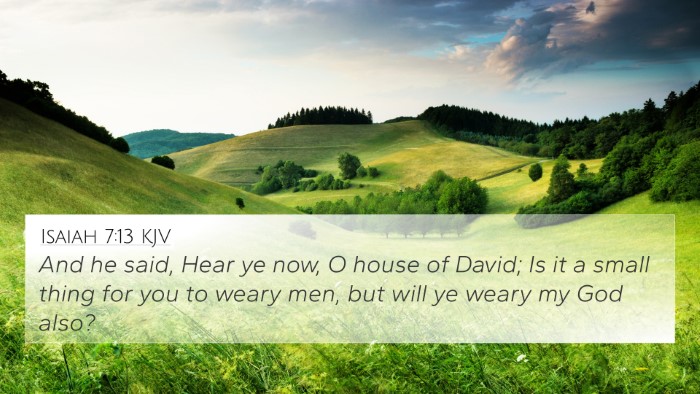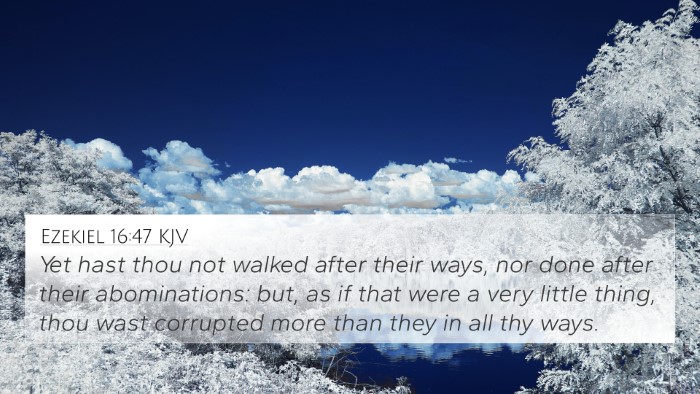Understanding Genesis 30:15
Genesis 30:15 states: "And Leah said unto her, Is it a small matter that thou hast taken my husband? And wouldest thou take away my son’s mandrakes also?" This verse reflects the intense rivalry between Leah and Rachel, two sisters married to Jacob, and the complex dynamics of their family structure.
Contextual Overview
This passage occurs within the narrative of Jacob's family life, highlighting the competition and jealousy that arises from their shared situation. Leah, frustrated by Rachel’s favor and the issues of fertility, expresses her feelings toward Rachel’s actions.
Commentary Insights
Matthew Henry's Commentary
Jealousy and Struggle: Matthew Henry highlights the emotional strife between Leah and Rachel, pointing out that the mandrakes represent Leah's desperate attempt to regain some favor and love from Jacob. The mandrakes, believed in ancient cultures to have fertility-enhancing properties, symbolize Leah's desire not just for Jacob's affection but for securing her place within the family. This illustrates the broader human experience where personal worth can seem tied to familial relationships.
Albert Barnes' Notes
Symbolism of Mandrakes: Albert Barnes notes that mandrakes were considered aphrodisiacs, and by seeking them, Leah is making a poignant statement about her own worth and the perceived benefits they could bring. He argues that this exchange highlights the underlying themes of envy and competition for Jacob’s attention and support. The scenario emphasizes the pain and anxiety of women in a patriarchal society.
Adam Clarke's Commentary
Familial Dynamics: Adam Clarke underscores the larger narrative of Jacob's family, pointing out how these interactions spell out the struggles of love and priority within marriages. He provides insights into the patterns of manipulation and desire that characterize the way Leah and Rachel relate to each other, drawing attention to the nature of their relationship and its implications within the broader story of Israel.
Thematic Connections
The rivalry and emotional turmoil between Leah and Rachel can be seen as a theme that resonates throughout the Bible, illustrating deeper truths about human nature, the desire for acceptance, and the complex relationships that often exist within families.
Bible Cross-References
- Genesis 29:32-35: Leah bearing Jacob's first four sons represents her struggle for love.
- Genesis 30:1: Rachel's complaint about her barrenness shows her desperation.
- Genesis 25:24-26: Jacob's own family dynamics provide context to rivalry.
- Genesis 49:3-4: Jacob’s blessing shows the significance of his sons and their mothers.
- 1 Samuel 1:5-6: Hannah's similar plight with Peninnah draws parallels to Rachel.
- Romans 9:10-13: The dynamics of chosen-ness echo the family’s story.
- Luke 1:36: Reflects on divine intervention in matters of fertility.
Conclusion
In conclusion, Genesis 30:15 invites readers to explore the intricate web of relationships and emotions that characterize the early patriarchal narratives. Through cross-referencing with related scriptures, one can gain a fuller understanding of how these themes resonate throughout the Biblical text, enriched by the insights of various commentaries.
Further Exploration
To dive deeper into the connections between Bible verses, one may consider using tools for Bible cross-referencing or consult a Bible concordance. Engaging with a cross-reference Bible study can illuminate the thematic links across the Scriptures, offering a more comprehensive approach to understanding Biblical narratives.
